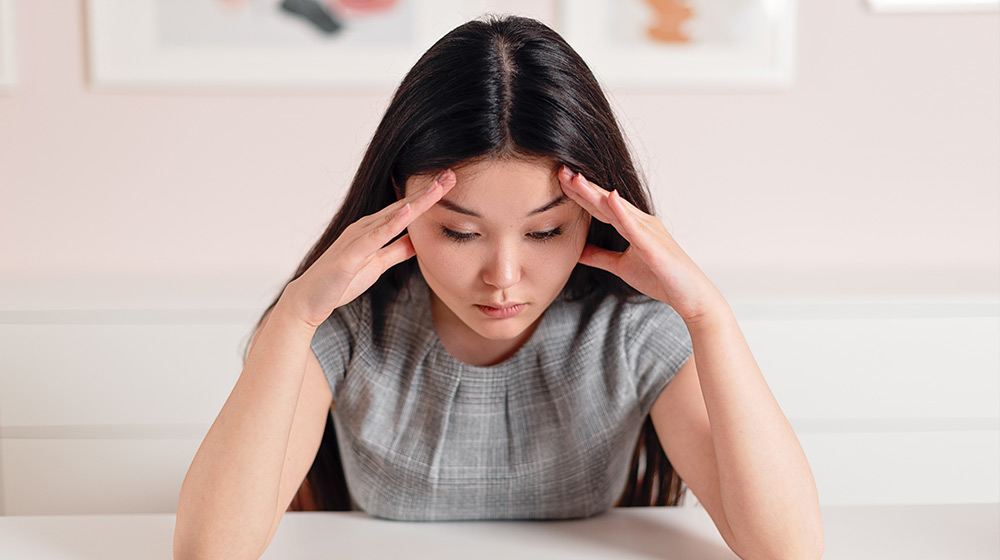Ladies, have you ever wondered if that persistent fatigue or those unexplained headaches might be more than everyday nuisances?
You may be unknowingly carrying the weight of stress.
Increasing symptoms of stress in women is a wake-up call for all. But unfortunately, we do not know the silent ways stress creeps into our lives.
Explore the signs, ask the questions, and uncover the answers that could transform your psychological and overall well-being.
Break the Silence! Shedding Light on Emotional Instability in Women
Women Are Experiencing More Stress
In today’s fast-paced world, stress has become an everyday companion. However, an alarming trend has emerged over recent years:
Women are experiencing MORE STRESS than ever before.
Multiple factors contribute to the increasing stress levels among women. One significant factor is the juggling act many women perform, managing multiple roles as mothers, caregivers, professionals, and partners.
- According to a 2010 study by the American Psychological Association (APA), women are more likely than men to report experiencing a great deal of stress, with 28% of women compared to 20% of men citing this.
- Societal pressures can intensify stress among women. The gender pay gap, discrimination at work, marriage, relationships, and unequal household responsibilities can all create an overwhelming burden.
- The same study by APA found that more women say that money (79% vs. 73% of men) and the economy (68% vs. 61%) are sources of stress. Surprisingly, married women experience more stress than unmarried women (33% vs. 22%).
Why Stress-induced Emotional Instability Is Bad

Stress-induced emotional instability, a condition in which a person’s emotional well-being becomes disrupted or erratic due to the effects of stress, is a serious concern, especially for women, leading to far-reaching mental, physical, and social consequences.
- Mentally, chronic stress can lead to anxiety and depression. The constant release of stress hormones, such as cortisol, can disrupt neural pathways in the brain, impairing cognitive function and emotional regulation.
- Physically, stress can weaken the immune system, making women more susceptible to illnesses. It can also contribute to chronic conditions like heart disease and autoimmune disorders.
- Socially, stress can strain relationships. Women overwhelmed by stress may find it challenging to maintain healthy interpersonal connections, potentially exacerbating feelings of loneliness and inadequacy.
What Are the Symptoms of Stress in Women?
Stress can silently infiltrate our lives, and the impact can be profound for women. Here are some key symptoms of stress in women:
- Emotional Instability: Persistent anxiety, irritability, mood swings, and feeling overwhelmed can be the early symptoms of stress in women.
- Physical Strain: Frequent headaches, muscle tension, digestive issues, and changes in appetite can manifest as physical symptoms.
- Sleep Disturbances: Insomnia or disrupted sleep patterns often accompany high-stress levels, leading to fatigue.
- Cognitive Challenges: Difficulty concentrating, forgetfulness, and racing thoughts may indicate cognitive stress.
- Weakened Immunity: Frequent illnesses and slower recovery times due to a compromised immune system are red flags.
- Changes in Menstrual Patterns: Stress can disrupt menstrual cycles, causing irregularities and exacerbating premenstrual symptoms.
- Social Withdrawal: A tendency to isolate oneself, withdraw from social activities, or experience strained relationships is common.
- Increased Substance Use: Some women may use alcohol, tobacco, or other substances to cope with stress.
Can Stress Cause Nosebleeds?

The answer is yes but with some caveats.
Stress can indirectly lead to nosebleeds through various mechanisms. When you’re stressed, your body goes into a “fight or flight” response, causing an increase in heart rate and blood pressure. This phenomenon can lead to the dilation of blood vessels, including those in the nose, making them more prone to rupturing.
However, while stress can make nosebleeds more likely, it’s not the only cause. Other factors like dry air, allergies, or underlying medical conditions can also play a role.
How Long Can Stress Delay Your Period?
When stressed, your body releases stress hormones like cortisol, disrupting the delicate balance of hormones responsible for regulating your menstrual cycle. This disruption can lead to a late period, irregular cycles, or even missed periods.
The length of the delay depends on several factors, including the intensity and duration of stress, your overall health, and individual variations in hormonal sensitivity.
For some women, stress might cause a delay of a few days to a couple of weeks, while others may even experience more prolonged disruptions.
Can Stress Cause Anemia?
Stress itself does not directly cause anemia, but it can indirectly contribute to developing or exacerbating this condition.
- Dietary Changes: During stressful periods, individuals may neglect proper nutrition or experience changes in eating habits, leading to nutrient deficiencies, including iron and vitamin B12 – crucial for red blood cell production.
- Digestive Problems: Chronic stress can lead to digestive issues like gastritis or irritable bowel syndrome, potentially affecting nutrient absorption.
- Immune Function: Stress weakens the immune system, making individuals more susceptible to infections or chronic diseases that can lead to anemia.
Does Stress Cause High Blood Pressure?

Yes, stress can cause temporary increases in blood pressure, which, when chronic, can contribute to the development of hypertension (high blood pressure).
When you experience stress, cortisol and adrenaline cause your heart rate and blood pressure to rise, preparing your body to respond to perceived threats.
While this acute response becomes steady, chronic stress can lead to persistent high blood pressure. Over time, elevated blood pressure can damage blood vessels, increasing the risk of heart disease, stroke, and other cardiovascular issues.
Can Stress Cause Stomach Pain?
Stress can cause stomach pain, as the gut is susceptible to emotional and psychological factors. The gut-brain connection plays a significant role in this phenomenon.
- Muscle Tension: Stress can cause the digestive tract muscles to contract more, leading to cramps and discomfort.
- Alterations in Gut Microbiota: Chronic stress can affect the balance of gut bacteria, potentially leading to digestive problems.
- Changes in Eating Habits: Stress often leads to overeating, undereating, or choosing unhealthy foods, all of which can contribute to stomach pain.
Can Stress Cause Weight Gain?
Stress can lead to weight gain, making it one of the most concerning symptoms of stress in women. When stressed, your body often craves high-calorie, comfort foods rich in sugars and fats. This emotional eating can result in a calorie surplus and unwanted pounds.
Furthermore, chronic stress elevates cortisol levels, a hormone linked to fat storage, especially around the abdomen.
Stress also disrupts sleep and metabolism and promotes insulin resistance, making it easier to gain weight. Also, stress can deter physical activity, further exacerbating the issue.
How to Deal With Stress in Women

In general, coping with stress includes a multifaceted approach. First, recognizing the symptoms of stress in women is crucial. Identifying emotional, physical, and behavioral cues helps pinpoint the underlying issue.
Embrace Mindfulness and Physical Activity
One effective strategy is practicing mindfulness and relaxation techniques like deep breathing, meditation, or yoga. These methods alleviate the body’s stress response and foster a sense of calm.
Meanwhile, regular exercise releases endorphins that boost mood and reduce stress, whether a brisk walk or a total workout.
Nourish Your Body and Prioritize Rest
Maintaining a balanced diet rich in nutrient-dense foods supports overall well-being and combats stress-related eating habits.
Adequate sleep is non-negotiable; it rejuvenates the body and mind. Once exhaustion sets in, stress becomes easier to manage.
Build a Supportive Network and Set Boundaries
Seeking support through friends, family, or professional counseling can provide invaluable emotional relief. Setting realistic goals, time management, and learning to say no when necessary helps reduce overwhelming responsibilities.
By employing these strategies, women can regain a sense of emotional wellness, strengthen resilience, and better manage life’s inevitable stressors.

